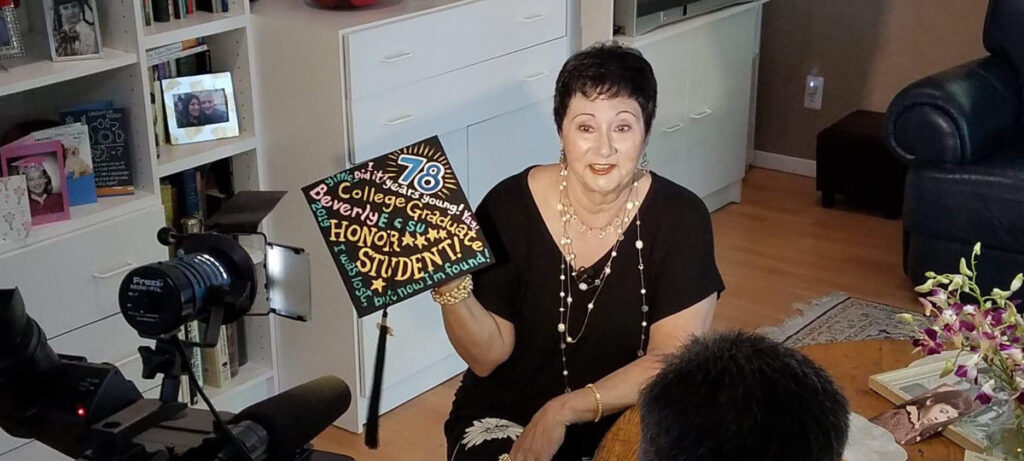Being a lifelong learner can help your brain. “Prioritizing your brain health at a younger age can have cumulative effects as you get older,” says Krystal Culler, who has a doctorate in behavioral health.
You’ve never too old to learn. Just ask Beverly Russo-Byk, who graduated from Eastern Connecticut State University with honors last year — when she was 78.
Russo-Byk started college 60 years earlier but stopped classes when her husband got sick. She had a career as the proprietor and technician of a medically oriented practice. Then she retired. She went back to school a few years later, in 2010.
“My husband and children were very encouraging, so I took one summer course to see if I could do it,” she says. “I took a course in sustainable energy and got an A, and this gave me the confidence to go forward.”
She completed her degree in general studies with a minor in science, taking one course at a time.
Her advice to fellow seniors: “Don’t doubt your ability to study, remember information, understand the material and be disciplined,” she says. “If anything, I felt more confident about my abilities at this stage of my life than I did when I was younger. I think life experiences contribute to the maturity of confidence.”
*Brain Benefits
Being a lifelong learner can help your brain.
“Prioritizing your brain health at a younger age can have cumulative effects as you get older,” says Krystal Culler, who has a doctorate in behavioral health. Culler is the founder of Your Brain Health Matters and a senior Atlantic fellow with the Global Brain Health Institute. “Engaging in an active lifestyle helps build your brain’s cognitive reserve, which is important to combat age-related diseases and decrease your potential dementia risks.”
She says there’s value to continuing to learn at any age because the brain is unaware of a person’s chronological age. Keeping an active mind offers intellectual stimulation, connection with others and psychological benefits like improved self-esteem and spiritual renewal.
According to Culler, recent research from the Irish Longitudinal Study on Ageing has found benefits for learning after age 50 and its impact on cognitive reserve.
“The result was that engagement in lifelong learning may help maintain cognitive function, even for individuals with lower levels of educational attainment,” she says.
*The Pure Joy of Learning
Jonita Mullins teaches state and local history courses for the Osher Lifelong Learning Institute, a nonprofit that offers educational opportunities for individuals over age 55.
“My classes are very well attended, and the students are eager to learn and appreciative of the opportunity to do so,” she says. “OLLI classes are offered for the pure joy of learning and require no homework, no tests and no grades. My students tell me they find these classes, which are offered in a wide variety of subjects, give them an opportunity to get out of their home, visit with other seniors and keep their minds active and engaged.”
Mullins also offers Okie Heritage Tours, walking and caravan tours of her Oklahoma community.
According to Mullins, participants like traveling to “off-the-beaten-path locations” as a way to broaden their perspectives and safely explore the past.*Learning Resources
Check your local libraries, senior centers and community colleges for information about nearby lifelong learning programs.
Look online, too. Some top-notch programs are free, or at least budget-friendly. For example, edX offers over 2,500 free courses from 140 tops schools, including Harvard and MIT. Other sites like Coursera and FutureLearn offer free classes in a variety of subjects. Some online educators also offer certification and for-credit programs.
Whether you join a book club, sign up for a cooking class, learn a hobby or study a new language, seniors have many educational opportunities to consider.

